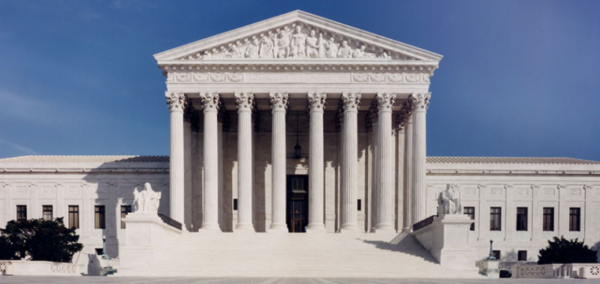by Dennis Crouch
The Supreme Court will be handling some significant cases over the next few months that may have a major impact for folks working in IP & Tech fields. The following is brief list sorted by the date of oral arguments.
- Feb 21 – Gonzales v. Google (Does the safe harbor of CDA Section 230 shield Google from liability for encouraging users to view offending videos).
- Feb 22 – Twitter v. Taamneh (Can Twitter be held liable for providing a service that aids and abets terrorism, despite its substantial non-violative uses).
- March 21 – Abitron v. Hetronic (Extraterritorial application of US Trademark Law — damages from foreign sales).
- March 22 – Jack Daniels v. VIP (Commercial humor leading to fair use or no-infringement/dilution in the TM context)
- March 27 – Amgen v. Sanofi (Full Scope Enablement: How much description is enough to satisfy the enablement requirement).
- April 17 – Slack v. Pirani (For securities liability, what causal link is required between misleading statement and the purchase of shares).
- April 18 – Groff v. DeJoy (Should Title VII of the Civil Rights Act be given more teeth to protect religious liberty in the employment context).
- April 19 – Counterman v. Colorado (When does speech rise to a “true threat”, unprotected by the First Amendment. Here, it was a series of unsolicited Facebook direct messages. The question is whether his intent (mens rea) matters, or can he be convicted based only upon the reasonably perceived threat of the recipient.).
- April 24 – Dupree v. Younter (If SJ is denied on a question of law, must the party reassert the issue in JMOL in order to preserve the issue for appeal. Although not a patent case, this issue comes up all the time in patent litigation).
- April 25 – Yegiazaryan v. Smagin (When can an injury to a foreign plaintiff’s “intangible property” serve as the basis for a RICO claim).

How are the spouses of the justices financially tied to the parties in each case?
That will tell you how the cases will be decided.
Never fear, Notorious S.C.O.T.U.S. is here!
Dupree v Younger is a sleeper case to be a critical one in affecting patent cases. The Federal Circuit has so often taken a liberal approach to waiver when they want to reach the patent merits – look at claim construction issues with jury instructions as another example. And the Federal Circuit seems to be applying its own rules for waiver, even though this is a procedural issue not unique to patent law. If the Supreme Court affirms the Fourth Circuit, this could be a killer for a lot of appeals.
Comments are closed.